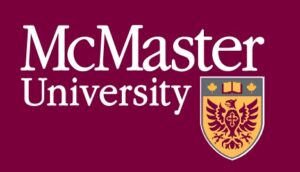SFAI får återkommande frågor om krav på narkosläkarbemanning för perioperativ verksamhet. Utöver kravet på att specialistkompetent anestesiolog skall finnas namngiven, välinformerad och omedelbart tillgänglig för varje generell och regional anestesi finns naturligtvis en begränsning i antalet anestesier en individ kan ansvara för. Behovet av direkt närvaro av specialistkompetenta anestesiologer under en anestesi varierar också beroende på patientens förutsättningar, ingreppets art och flertalet andra faktorer. Verksamhetschefen är alltid ytterst ansvarig för att verksamheten bedrivs på ett sätt som väl överensstämmer med lagkrav enligt HSL, Patientlagen, Patientsäkerhetslagen och övriga lagar som reglerar hälso- och sjukvårdens verksamhet, oavsett om den bedrivs i offentlig eller privat regi.
SFAI ämnar att, utifrån dessa förutsättningar och internationella rekommendationer, arbeta för att ta fram riktlinjer/rekommendationer för bemanning liknande de som redan finns för intensivvård respektive postoperativ vård. Dessa riktlinjer kan dock aldrig att ersätta verksamhetschefens ansvar och verksamhetens behov av att anpassa sin verksamhet efter tillgänglig kompetens och resurser för ett alltigenom patientsäkert perioperativt omhändertagande.

 Dear Colleagues, Non-invasive ventilation (NIV) is part of the initial management of hypercapnic respiratory failure. NIV can be associated with adverse effects including skin damage, limitations with oral access, and interface intolerance which may lead to early termination. High-flow nasal cannula (HFNC) systems deliver highrate humidified oxygen through more tolerable nasal cannula. HFNC can theoretically reduce dead space, reduce inspiratory airway resistance, and augment alveolar recruitment. These physiological benefits help reduce work of breathing while providing oxygen in a carefully controlled manner. Current HFNC guidelines (ERS 2022) suggest a trial of NIV prior to HFNC use in a patient with hypercapnic respiratory failure; however, this is based on low certainty evidence.
Dear Colleagues, Non-invasive ventilation (NIV) is part of the initial management of hypercapnic respiratory failure. NIV can be associated with adverse effects including skin damage, limitations with oral access, and interface intolerance which may lead to early termination. High-flow nasal cannula (HFNC) systems deliver highrate humidified oxygen through more tolerable nasal cannula. HFNC can theoretically reduce dead space, reduce inspiratory airway resistance, and augment alveolar recruitment. These physiological benefits help reduce work of breathing while providing oxygen in a carefully controlled manner. Current HFNC guidelines (ERS 2022) suggest a trial of NIV prior to HFNC use in a patient with hypercapnic respiratory failure; however, this is based on low certainty evidence.


